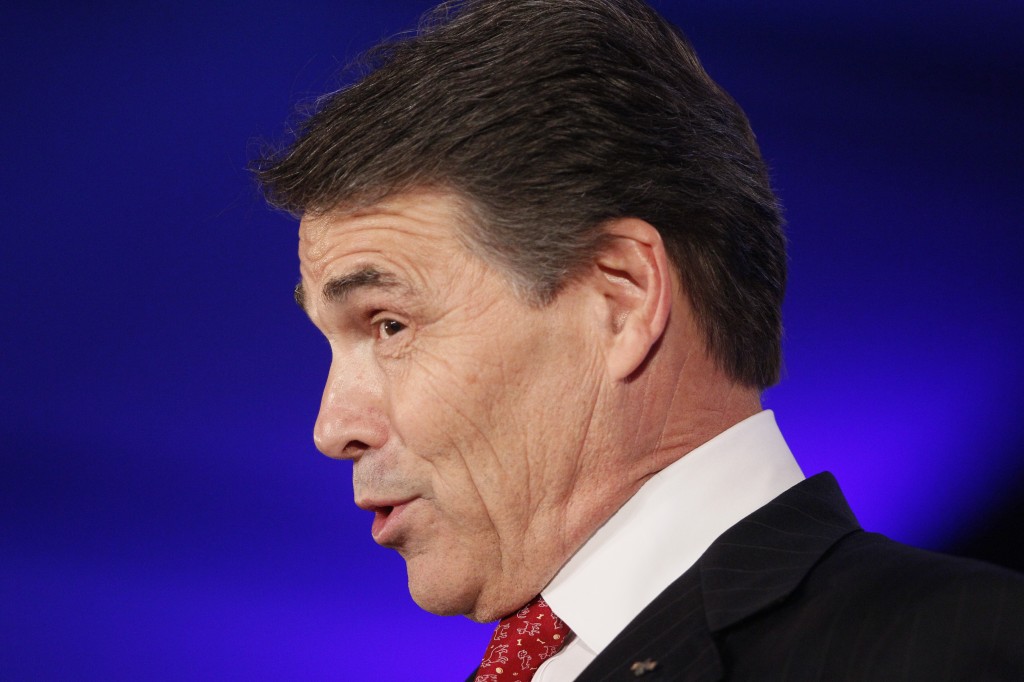Perry's Failing Grade on Free Market Insurance

Texas governor and presidential candidate Rick Perry talks a good game when it comes to free-market capitalism. But in the area of policy I know best--property and casualty insurance--Perry has not proven himself either a free-marketer or a strong leader.
Property and casualty insurance is by far the largest area of economic activity that states alone control, so this should be a concern for GOP primary voters looking for a free-market champion.
Let's start with a bit of background: under the 1945 McCarran–Ferguson Act, states have near-total decision making authority over "the business of insurance." Although federal laws governing health care and investments respectively have created a variety of national standards for health and life insurance, the laws about other types of insurance--auto, homeowners, and commercial insurance--differ a great deal between states. The ways that policies are described, the companies that do business, the ways that insurance rates get set, depends entirely on what state officials decide. And Perry's record is decidedly unimpressive.
When I rated all of the states' insurance environments, Texas under Perry ranked next-to-last with a grade of F. The problems are most prominent in two areas: rate oversight and the state's "public option" insurer of last resort.
Rate regulation first. Here, Texas offers the worst of all worlds: the state's homeowners' insurance rates are among the highest in the country even though the laws intended to exert government control over them are the nation's most onerous. While Texas' law specifies that insurers can more-or-less set their prices based on supply and demand, state bureaucrats at the Texas Department of Insurance (TDI), as a practical matter, need to approve even minor rate adjustments before they happen. And the Department, led by a Perry appointee, employs more people than any other of its type.
All this oversight doesn't really keep rates down (the state ultimately needs to let insurers charge enough to stay in business) but it offers insurance companies an enormous disincentive against cutting rates when costs decline. Rate regulatory policies have generally encouraged insurers to charge more inland to keep rates down near the coast so the system has also provided an enormous incentive to destroy coastal wetlands. Businesses don't like it: the state has one of the country's most concentrated homeowners' insurance markets and, given its size and rapid growth, fewer auto insurers than one would expect.
Certain parts of the insurance market are downright socialist. The state's homeowners' insurer of last resort for people who can't find insurance in the private sector--the Texas Wind Insurance Association (TWIA)--is the country's second largest entity of its type (only Florida writes more property insurance backed by taxpayers) and several of its top executives resigned earlier this year. Although severe hurricane risks mean that some similar entity would probably exist in Texas no matter what happens, TWIA has continually set its rates in direct competition with those in the private market while Perry appointed regulators have refused efforts to raise them. As a result, it's big and--if a major storm strikes Texas--could end up having to impose huge special taxes called "assessments" that would end up driving many insurers out of the state and boosting rates for all consumers. Unlike most other so-called residual markets--which focus on providing insurance to people of reasonably modest means who really can't find it elsewhere--TWIA also writes insurance for homes with a structure value over $1 million. (Unique among hurricane-prone states, Texas' coastal counties are poorer than those inland.)
Admittedly, Perry has done something about TWIA. Following TWIA's CEO's resignation and an outcry from the insurance industry, Perry kept the legislature in session earlier this year until it passed a number of reforms that stabilize TWIA. While these reforms will probably stave off a mass exodus of insurers, they still leave ordinary Texans on the hook for beachfront mansions. And the overall system for setting insurance rates remains unchanged. In any case, nearly everything that happened emerged from the legislature rather than Perry's office.
Were Perry running on something other than his own conservative, free-market small government credentials, a lot of this might be pretty trivial. In fact, insofar as his special session contributed to legislation that stabilized TWIA, Perry has shown that he's not entirely disengaged from the state's realities. But his record on insurance shows that Rick Perry just isn't he free market paladin many on the Right want.

